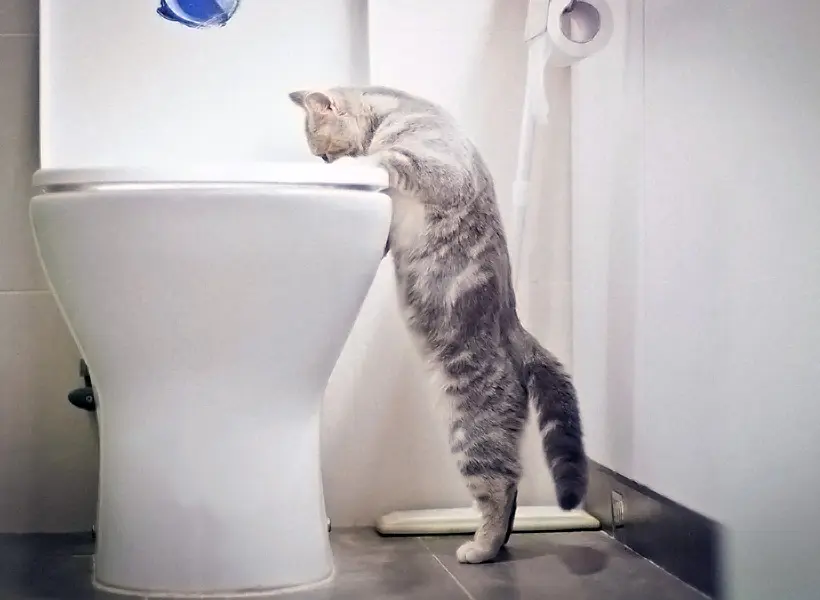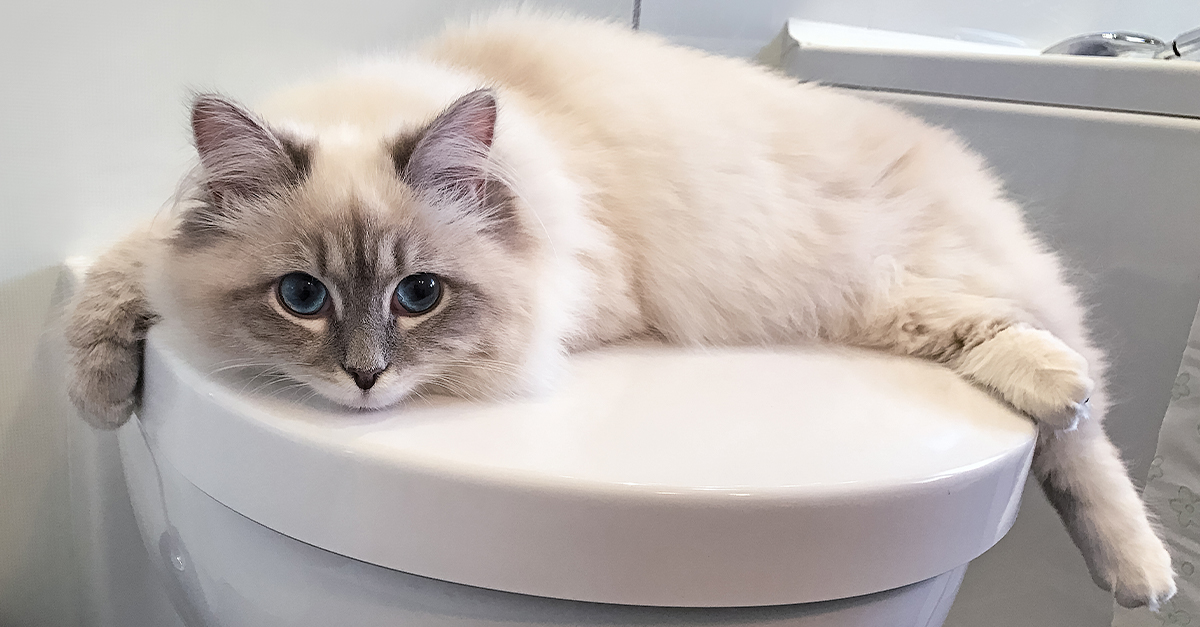Just how do you really feel in regards to Don’t flush cat feces down the toilet?

Intro
As cat owners, it's essential to be mindful of how we dispose of our feline good friends' waste. While it may seem convenient to flush feline poop down the bathroom, this technique can have damaging repercussions for both the environment and human wellness.
Environmental Impact
Purging pet cat poop presents unsafe pathogens and parasites into the water, posing a significant risk to marine ecological communities. These impurities can adversely affect aquatic life and concession water quality.
Health and wellness Risks
In addition to ecological problems, purging pet cat waste can likewise posture health risks to human beings. Pet cat feces might include Toxoplasma gondii, a bloodsucker that can create toxoplasmosis-- a possibly extreme health problem, particularly for expecting females and individuals with weakened body immune systems.
Alternatives to Flushing
The good news is, there are more secure and a lot more accountable ways to get rid of cat poop. Take into consideration the adhering to choices:
1. Scoop and Dispose in Trash
One of the most typical technique of throwing away cat poop is to scoop it into a biodegradable bag and throw it in the garbage. Be sure to make use of a dedicated litter scoop and get rid of the waste promptly.
2. Usage Biodegradable Litter
Choose biodegradable cat clutter made from materials such as corn or wheat. These trashes are eco-friendly and can be securely disposed of in the garbage.
3. Bury in the Yard
If you have a yard, consider burying cat waste in an assigned location away from vegetable yards and water resources. Make sure to dig deep adequate to avoid contamination of groundwater.
4. Set Up a Pet Waste Disposal System
Invest in an animal garbage disposal system particularly designed for cat waste. These systems utilize enzymes to break down the waste, minimizing odor and ecological influence.
Conclusion
Liable family pet possession prolongs past offering food and sanctuary-- it additionally involves appropriate waste monitoring. By refraining from flushing cat poop down the toilet and choosing alternative disposal techniques, we can lessen our ecological impact and safeguard human wellness.
Why Can’t I Flush Cat Poop?
It Spreads a Parasite
Cats are frequently infected with a parasite called toxoplasma gondii. The parasite causes an infection called toxoplasmosis. It is usually harmless to cats. The parasite only uses cat poop as a host for its eggs. Otherwise, the cat’s immune system usually keeps the infection at low enough levels to maintain its own health. But it does not stop the develop of eggs. These eggs are tiny and surprisingly tough. They may survive for a year before they begin to grow. But that’s the problem.
Our wastewater system is not designed to deal with toxoplasmosis eggs. Instead, most eggs will flush from your toilet into sewers and wastewater management plants. After the sewage is treated for many other harmful things in it, it is typically released into local rivers, lakes, or oceans. Here, the toxoplasmosis eggs can find new hosts, including starfish, crabs, otters, and many other wildlife. For many, this is a significant risk to their health. Toxoplasmosis can also end up infecting water sources that are important for agriculture, which means our deer, pigs, and sheep can get infected too.
Is There Risk to Humans?
There can be a risk to human life from flushing cat poop down the toilet. If you do so, the parasites from your cat’s poop can end up in shellfish, game animals, or livestock. If this meat is then served raw or undercooked, the people who eat it can get sick.
In fact, according to the CDC, 40 million people in the United States are infected with toxoplasma gondii. They get it from exposure to infected seafood, or from some kind of cat poop contamination, like drinking from a stream that is contaminated or touching anything that has come into contact with cat poop. That includes just cleaning a cat litter box.
Most people who get infected with these parasites will not develop any symptoms. However, for pregnant women or for those with compromised immune systems, the parasite can cause severe health problems.
How to Handle Cat Poop
The best way to handle cat poop is actually to clean the box more often. The eggs that the parasite sheds will not become active until one to five days after the cat poops. That means that if you clean daily, you’re much less likely to come into direct contact with infectious eggs.
That said, always dispose of cat poop in the garbage and not down the toilet. Wash your hands before and after you clean the litter box, and bring the bag of poop right outside to your garbage bins.
https://trenchlesssolutionsusa.com/why-cant-i-flush-cat-poop/

Hopefully you liked our topic about Can You Flush Cat Poo or Litter Down the Toilet?. Thank you for spending some time to read through our posting. Enjoyed reading our write-up? Please share it. Let another person check it out. Thank-you for going through it.
Click Here